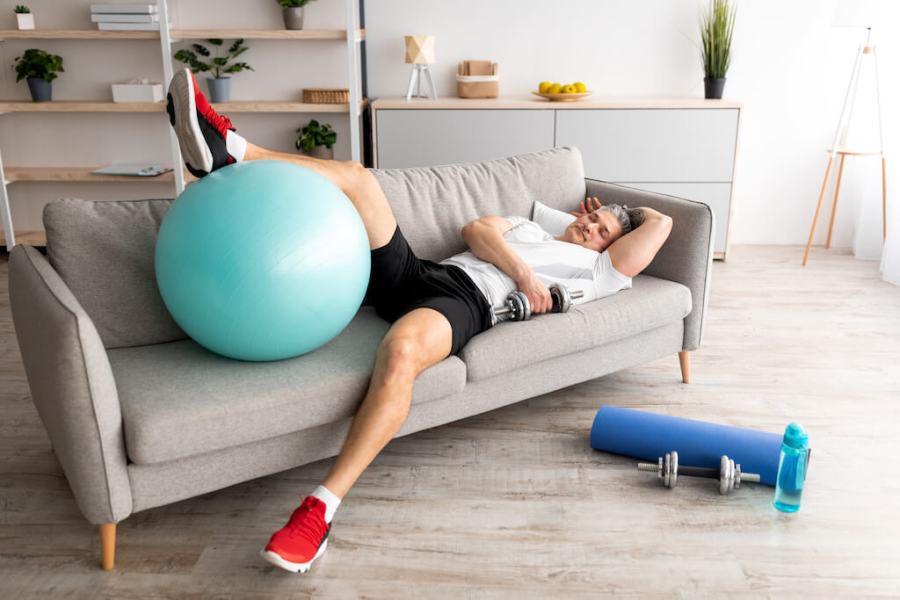A huge 37% of bleary-eyed Brits don’t bag enough sleep – with the figure rising to 57.1% among 17 to 23-year-olds. That’s bad news – not just for general mood, productivity and caffeine addiction – because a growing wave of evidence suggests sleep deficit can lead to heart problems, high blood pressure, diabetes, a weakened immune system and depression.
However, if you work out regularly, you’re in luck. A new study, conducted by the American Heart Association, found that resistance training can improve sleep – even better than aerobic exercise. Subjects who followed a year-long resistance training programme enjoyed a higher quality and duration of sleep than fitness-phobes and cardio-centric exercisers.
RELATED: 5 Strategies For Better Sleep
How does resistance training improve sleep?
The subjects performed one hour of strength training three times per week. They used a fatiguing full-body mixture of: leg presses; chest presses; biceps curls; lat pull-downs; leg curls; triceps pushdowns; leg extensions; abdominal crunches; shoulder presses; lower-back extensions; torso rotations; and hip abductor raises.
For each exercise, they performed three sets of 8-16 reps at 50-80% of their one-rep max. By the end of the year, the weightlifters were bagging an extra 40 minutes of sleep per night. In comparison, the aerobic exercisers gained 23 minutes of sleep, while the combined group increased their sleep by 17 minutes.
“Both aerobic and resistance exercise are important for overall health. However, our results suggest that resistance exercises may be superior when it comes to getting better sleep at night,” says study author Angelique Brellenthin, assistant professor of kinesiology at Iowa State University.
“Resistance exercise significantly improved sleep duration and sleep efficiency. These are critical indicators of sleep quality that reflect how well a person falls asleep and stays asleep throughout the night.
“Therefore, if your sleep has gotten noticeably worse over the past two stressful years, consider incorporating two or more resistance exercise training sessions into your regular exercise routine. This will improve your general muscle and bone health, as well as your sleep.”
Words: Mark Bailey







